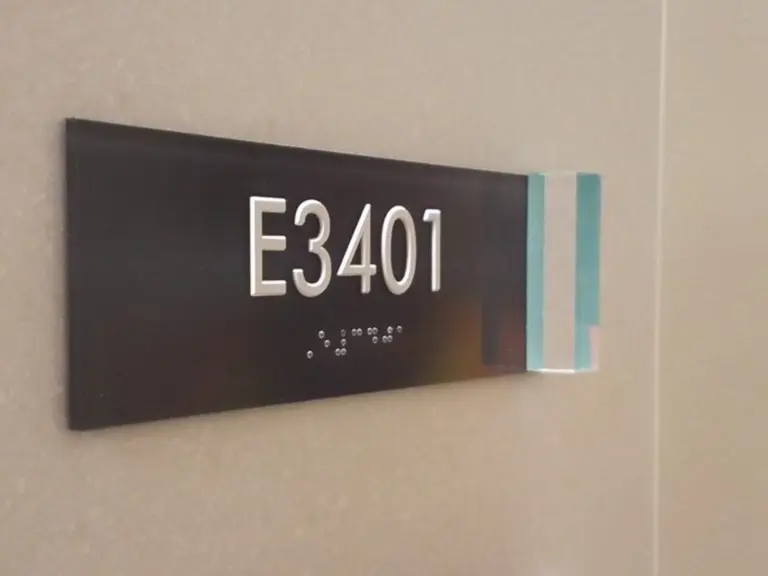ADA Compliant Signage will Keep You Out of Trouble
ADA compliant signage grew out of the Americans with Disabilities Act. According to the CDC, 61 million adults live with disability in the US. In order to communicate effectively with these citizens, in 1990, the Americans with Disabilities Act (ADA) was passed. This law prohibits discrimination against persons with disabilities in all areas of public life, including schools, jobs, transportation, and all private and public places that are open to the general public. Before the law was passed, it is difficult for individuals with disabilities to hold certain jobs or even patronize some business. The law created a level playing field and required employers and businesses to provide reasonable accommodations.
The act necessitates that proper ADA signage is put up in public places to assist people with visual, hearing or other types of disabilities. This helps them read/locate what they are looking for, through tactical search, Braille or visual signs. The ADA signage helps special individuals get around the facilities and access different parts of the building such as parking, restroom and more. It also supports safety in public places by ensuring that the entrances and exits are clearly marked and easily distinguishable from other rooms.
ADA complaint requirements
The ADA dictates 3 categories of requirements:
- it clarifies whether or a not a sign is required
- exactly where a sign must be installed, and broad requirements dictating where ADA signs may not be installed
- design requirements specifying font, spacing, letter height, color contrast and other details
Generally speaking, almost every sign that can be considered an architectural sign is required to comply with ADA Guidelines. A sign must be ADA compliant if it identifies a permanent space or a room of a facility such as entrances or exits, directs or informs about functional spaces such as restrooms or parking spaces, or identifies, informs about or directs to accessible features of the facility. On the other hand, signs used for marketing purposes, menus, temporary signs, company names and logos are some signs that are not required to comply with ADA guidelines.
Why ADA compliant signage matters?
As an employer or business owner, there are several reasons why you should care if your signs are ADA compliant.
- The law mandates that signs in public places have to be ADA compliant. Imagine a visually impaired person trying to read a sign with small letters and numbers. Non-compliance with ADA requirements regarding signage can invite fines to the tune of $75,000
- Having ADA signage is a simple and effective way to make all visitors and patrons feel welcome and respected. Anyone visiting your premises, even if they are living with a disability, should be able to navigate through the building easily. ADA signage sends a positive message that your business values all individuals. It has been seen that purchasing decisions of people with disabilities is greatly influenced by how accessible a business is. By making special accommodations for them, you make them more comfortable and feel welcomed. They are more likely to come back again for a purchase.
Who needs to provide ADA signs?
According to the ADA standards for accessible design released in 2010, “Each facility or part of a facility constructed by, on behalf of, or for the use of a public entity shall be designed and constructed in such manner that the facility or part of the facility is readily accessible to and usable by individuals with disabilities, if the construction was commenced after January 26, 1992.” However, if the public entity can demonstrate that it is structurally impracticable to meet the ADA requirements, full compliance of this section is not required.
While it may all seem complicated at first, but it is all common sense and more about making your facility accessible to everyone-including those living with disabilities. You do not need to learn all the technicalities of the ADA design requirements; you just need to find yourself a signage partner that specializes in ADA signs.
If you need help with your ADA compliant sign, we can help. Don’t hesitate to call us!
